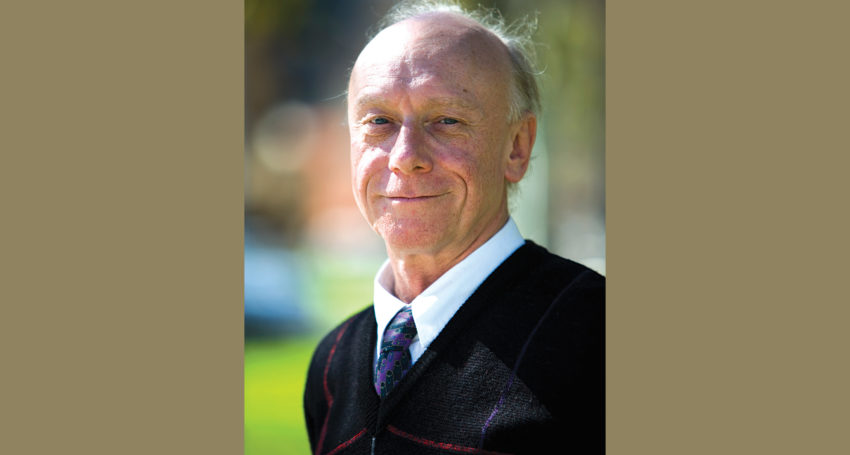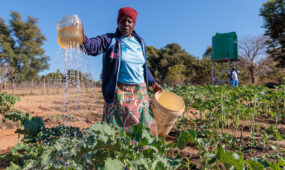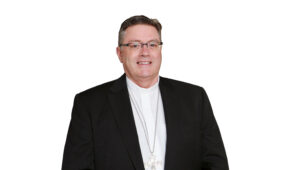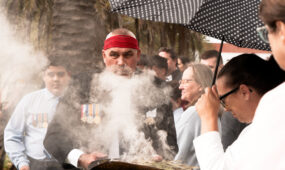Deportation a ‘second sentence’ for some prisoners
News
The Federal Government’s treatment of prisoners who successfully rehabilitate while in gaol has come under question, with claims that some are being subjected to a ‘second sentence’ through deportation, rather than being allowed back into the community.

Prison chaplain Br Martyn Paxton said he was frustrated that while the key message to prisoners was to rehabilitate, when some did make the decision to turn their life around they were still not welcomed back in the wider community. Under legislation he described as “lacking in humanity”, he said men he was ministering to in the prison system and who were not Australian citizens were facing the real prospect of being deported to their home country upon their release.
Advertisement
“It seems to me that when the Immigration Minister does this he is trying a man and sentencing him over and above the imposition of the courts, and thus it is a violation of separation of powers. The Minister is doing this without any real public scrutiny as people just don’t know it happens,” Br Paxton told The Southern Cross.
“On the one hand our correctional systems are supposed to rehabilitate people and if they are successful in doing this, why does the Commonwealth feel the need to then deport these same people on character grounds?
“Does the Commonwealth question the ability of the states to effectively rehabilitate?”
Under section 501 of the Migration Act 1958, a migrant can have their visa cancelled if they do not pass the ‘character test’. One of the most common reasons for ‘failing’ the test is having a substantial criminal record, including being sentenced to a term of imprisonment for 12 months or more. Without a valid visa, the person then faces deportation to their country of origin.
“It makes a mockery of what we are trying to achieve which should be rehabilitating prisoners and then letting them have a second chance in our community,” Br Paxton said.
“Where is the humanity in ripping families apart? What worries me are the people who are left behind, the mothers, wives and children.”
Br Paxton said he knew of several men who had been deported once they were released on parole. He cited the example of Albanian-born Ludovik Perzefi who is currently in Yatala Prison serving a sentence for blackmail and an aggravated count of assault.
“He has rehabilitated and deserves to be given a second chance,” he said.

Ludovik Perzefi
However, if Perzefi is successful in being released on parole later this year he knows he will immediately be taken into custody and deported to Albania.
Perzefi’s wife Miranda, who attends Holy Trinity Church at Para Hills, is devastated at the prospect of returning to her homeland. She said her husband – who has lived in Australia on a spousal visa since 2007 – had reconnected with his Catholic faith and the Church since his imprisonment and was a “changed man”.
Advertisement
While she and her three children aged 11, 10 and 9 desperately want their husband and father to be released from prison, Miranda said it was a double-edged sword as the only way they can be together again as a family is for all of them to return to Albania.
“We support him and want to be with him. We pray every night and one of the prayers is to bring him home,” she said.
“Going back to Albania will be very hard. We came to Australia for a better life. Life in Albania is not like in Australia. There are not the opportunities or freedoms there, and crime is high.”
Born in Albania, Miranda moved to Australia with her mother and brother in 2003 and became an Australian citizen in 2005. After she and Ludovik were married in 2005 they lived in Canberra and “life was good”. Ludovik was employed using his skill in stone work and they had good support from their extended family. In 2009 they moved to Adelaide and that’s when “things began to unravel” and he got involved in the “wrong crowd.”
Understanding that it would now take a “miracle” for Immigration Minister Peter Dutton to reverse the decision to deport her husband, Miranda said she was speaking out “for other families this will happen to” and to create public awareness about the deportations taking place.
“I would say to him (Minister Dutton) to soften your heart a bit. People deserve second chances. He (Ludovik) takes full responsibility for what he has done. He regrets it every single day and reflects on his actions.”
A spokesperson for the Department of Home Affairs said the Government was committed to protecting the community from the “risk of harm posed by foreign nationals who engage in criminal conduct or behaviour of concern”.
“When a decision is made to cancel or refuse a visa under section 501 of the Migration Act 1958, or not to revoke a mandatory cancellation, all relevant information and circumstances, including the impact on the individual and the individual’s family, are taken into account,” they said.
“The safety of the Australian public is a primary consideration and a decision to cancel a visa may be made, even when an individual has been a long-term resident of Australia. Non-citizens who do not hold a valid visa after cancellation or refusal under section 501 of the Act will be liable for detention and removal from Australia, pending resolution of any ongoing matters.”
Since the legislation was introduced on December 11 2014, a total of 4628 section 501 cancellations and 1930 section 501 refusals have been undertaken by the Department (as at June 30 2019).
Miranda appealed the cancellation of Ludovik’s visa with the Administrative Appeals Tribunal but the decision was upheld. She said she could not afford to hire a lawyer and was unable to access legal aid, and so presented the case herself. Likewise, she did not have the money to fund an appeal to the Federal Court.








Comments
Show comments Hide comments